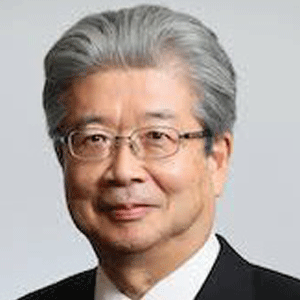
The oncology market, an increasingly important sector of the pharmaceutical industry, continues to confront barriers in supplying effective cancer treatments sensitive to the many individual requirements of patients. Therapy for cancer’s complexity needs to be more sophisticated than conventional approaches and requires precision targeting of specific cells, without harming healthy tissue. However, patients frequently experience high treatment costs, limited access, and side effects that compromise quality of life, while healthcare providers and researchers attempt to combine efficacy with safety. The development of effective therapies across many cancer types and stages is critical to addressing these challenges.
Daiichi Sankyo, a multinational pharmaceutical company, has focused its recent innovations on bridging gaps in oncology care. The company uses cutting-edge research to develop treatments that should effectively target cancer cells while leaving healthy cells relatively unscathed. Daiichi Sankyo's focus on oncology has been especially focused on antibody-drug conjugates (ADCs) that combine the potency of targeted therapy with chemotherapy. This approach allows for the company's handling of major limitations in existing therapies, providing alternative ways to treat cancers that are resistant to standard therapies or for which severe side effects are associated.
Precision with Proprietary ADC Technology
Daiichi Sankyo has developed a proprietary DXd ADC technology. The technology represents a new, more advanced approach to delivering chemotherapy directly to cancer cells by binding the chemotherapy drugs to antibodies. The idea is to make antibodies that will only stick to cancer cells, not healthy cells. This leads to a more precise treatment which means fewer side effects and one that is more effective. This ADC technology holds promise for more difficult-to-treat types of cancer that are challenging to treat with traditional chemotherapy or radiation.
Collaborative Partnerships and Global Reach
Given that Daiichi Sankyo knows the importance of collaboration for the progress of drug development and patients’ access to medication; it has forged strategic partnerships, particularly one with AstraZeneca, one of the leaders in oncology. This partnership involves co-developing and commercializing ADCs with both companies sharing resources, knowledge, and regulatory expertise to expand the reach of therapies. These collaborations are important as they are conducive to the company streamlining the drug distribution, traversing the complicated regulatory rigmarole, and making the treatments available to as large a patient base as possible across several regions.
Emphasis on Patient-Centric Solutions
Daiichi Sankyo is committed to patient centricity by enhancing the accessibility, tolerability, and real-world efficacy of cancer treatments. The company regularly carries out clinical trials of its drugs to refine them, based on patient feedback to make the treatment more effective. The real-world data used as input to their oncology pipeline development continues to advance the development of their drugs, making them applicable to various patient demographics. Trust in the medical community and the adoption of Daiichi Sankyo’s t herapies grows when patient outcomes come first.
Healthcare Impact and Sustainability Commitment
In addition to oncology, the company conducts research in many fields, with its goal to find solutions for millions of people around the world. It also integrates sustainability into its R&D and manufacturing processes to deal with the environmental impacts of pharmaceutical production. That commitment to sustainability is in tune with the company’s long-term vision to provide healthcare solutions that are both environmentally sensible and medically effective.
As an important player in oncology, Daiichi Sankyo’s focus is on developing cutting-edge cancer therapies that are patient-centered and sustainable. The company’s ADC technology, patient-focused initiatives, and partnerships highlight its commitment to addressing cancer care needs.
🍪 Do you like Cookies?
We use cookies to ensure you get the best experience on our website. Read more...


